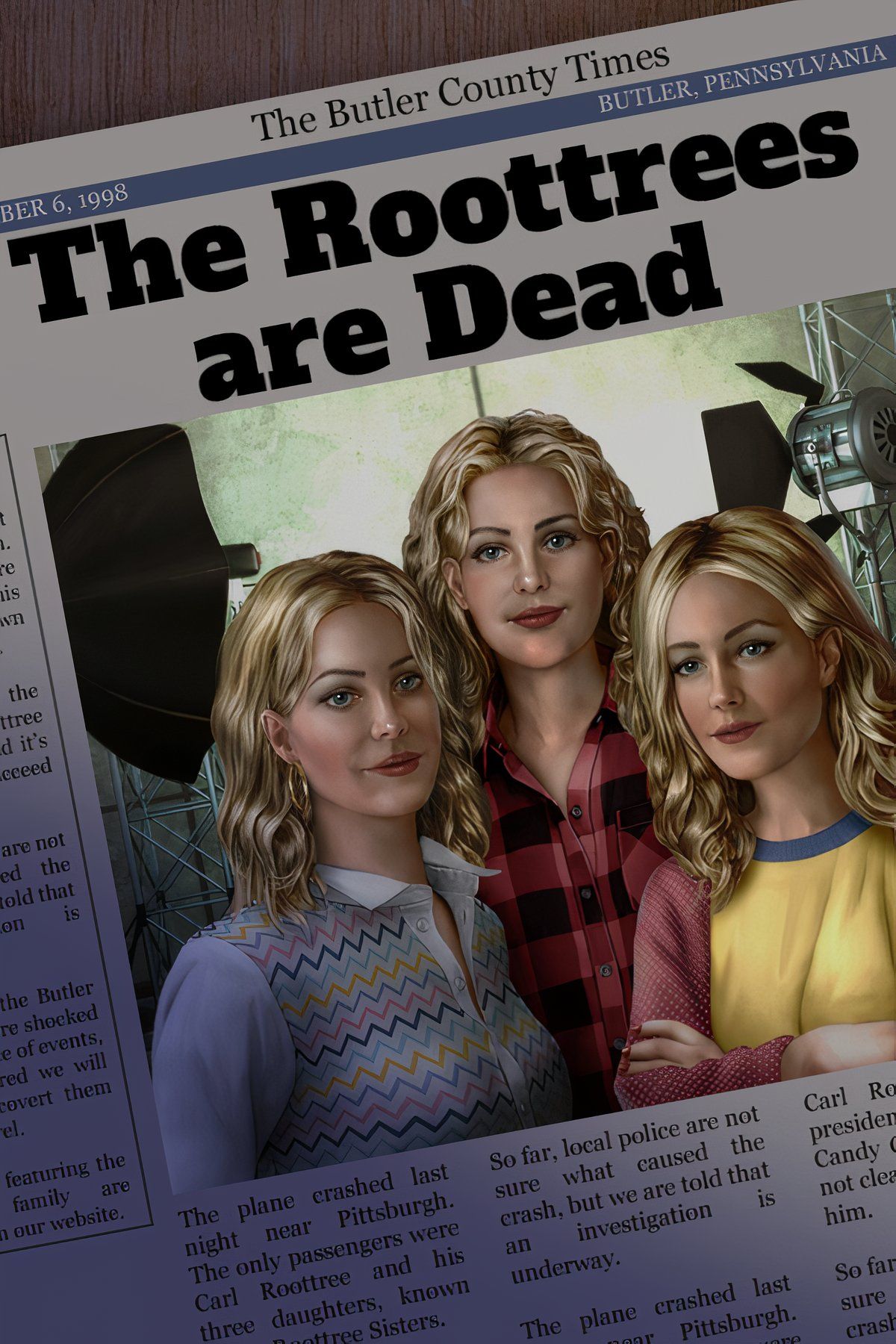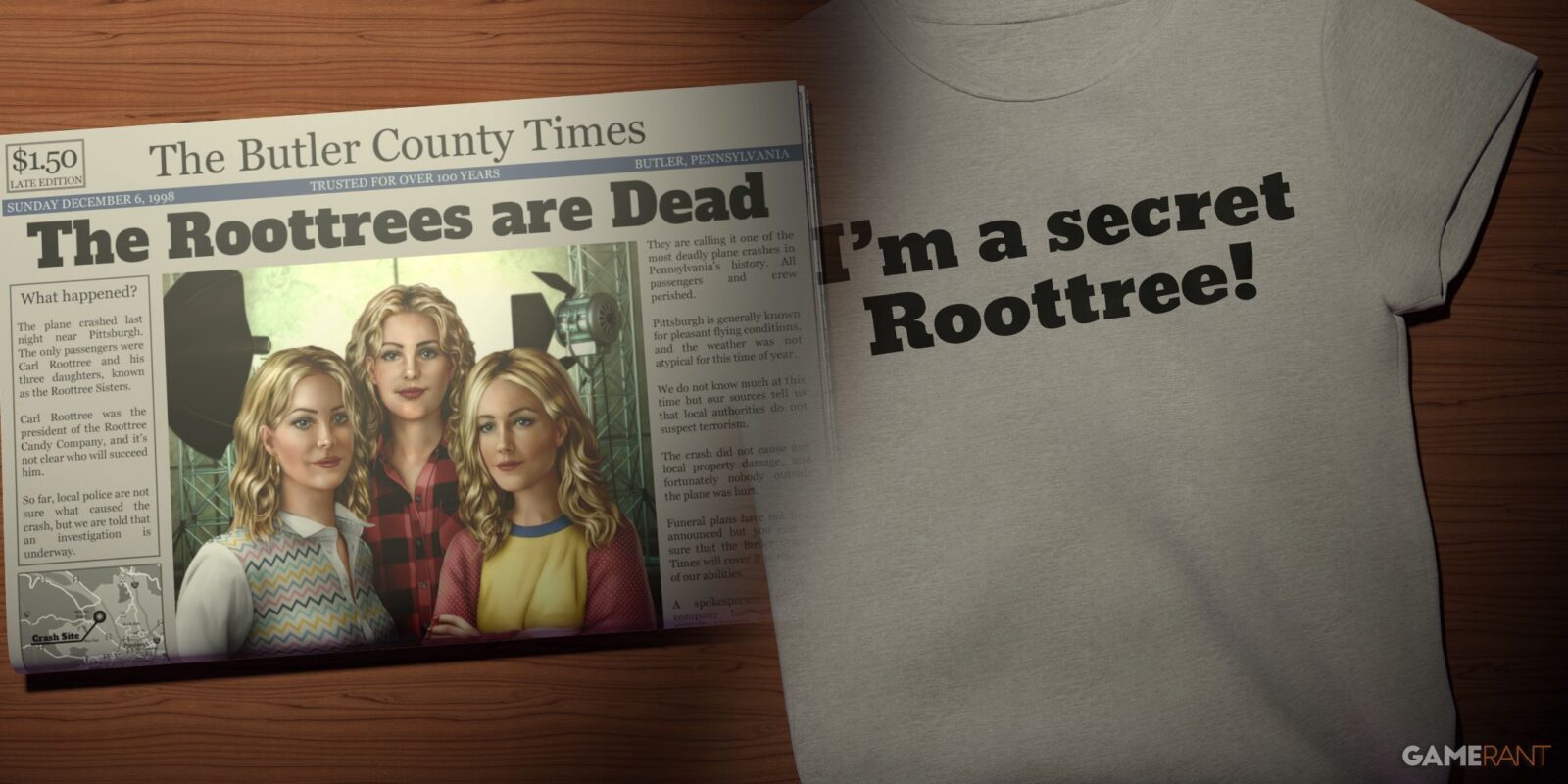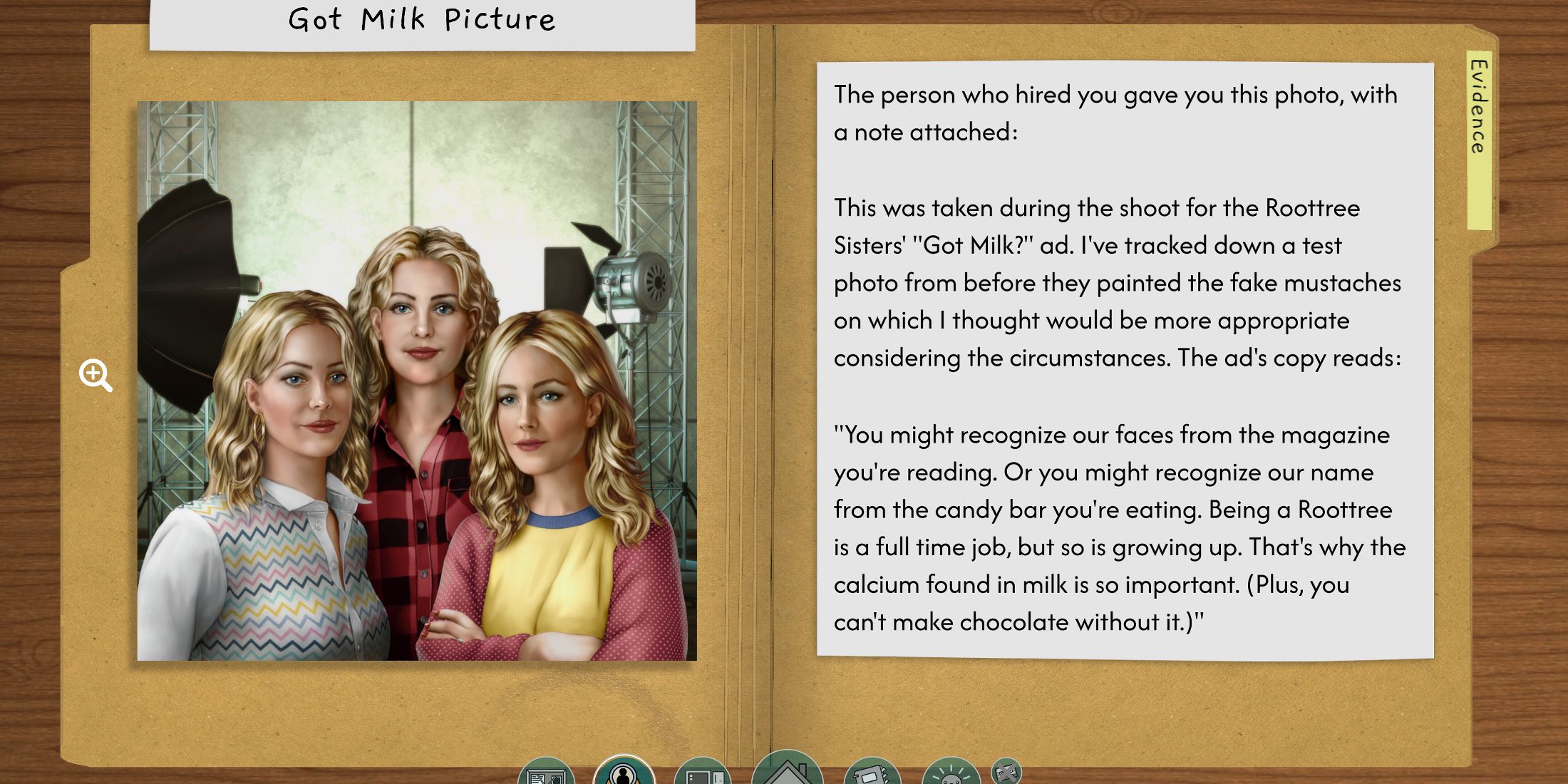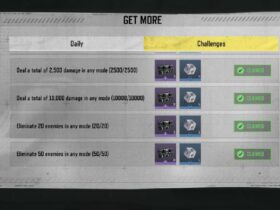The Roottrees are Dead is an investigative narrative game created by Robin Ward. After a plane crash took the lives of Carl Roottree, his wife, and his daughters, an anonymous source wants to track down blood relatives and distribute the inheritance. This leaves players with a large family tree to fill in as they uncover the mystery The Roottrees are Dead holds within its investigative assets. On top of that, any who complete the story on the new Steam version get a sequel in the form of Roottreemania, that further expands on the game’s central, clue-finding conceit.
What makes The Roottrees are Dead unique is the fact that, unlike many other games dealing with similar detective work, it gives players a computer, a desk, and a cork board to fill out and solve the mystery. All the investigating is done by looking up articles online and piecing things together a few breadcrumbs at a time. With optional entries for spouses not related to the family and extra pictures to organize, players will certainly be left untangling the Roottrees’ history for some time. So much so, that the game overstays its welcome a bit, with The Roottrees are Dead suffering from unneeded padding that takes away the weight of the mystery’s resolution.
The Roottrees are Dead Delivers on Keeping a Mystery in the Dark
The Roottrees aren’t exactly a fan of having their genealogy so closely scrutinized, as players will learn from their source, which makes this a rather unique sleuthing game – it’s done entirely in secret. There are hardly any clues inThe Roottrees are Dead that aren’t found by cross-referencing evidence and searching the Internet. The entire game is built around quickly and easily switching between the family tree board, evidence table, and computer, highlighting and copying specific key phrases when needed. Players will be thrilled to know there is an in-game notebook to jot quick thoughts and keep track of the timeline as things get more complex. They’ll be practically living in this notebook as Roottrees progresses.
One of the other things that makes The Roottrees are Dead stand out from other investigative titles is the inclusion of a hint system where you consult a rubber duck. Not only is it a great tongue-in-cheek reference to the program debugging theory, but the hints the duck offers start out vague before slowly increasing in obviousness before giving the answer away. It helps point players in the right direction and is contextual based on the information in front of them. While there is no easy mode for The Roottrees are Dead, the little rubber duck companion can be a boon for any who get stuck.
Players will have to get used to the sight of a corkboard backdrop, a wooden table, and a dated computer monitor, as there’s not much else to the game, though the artwork in the pictures and other evidence is beautiful to look at. Its open-source jazz soundtrack is great for getting in the researching and reading mood, serving as the perfect mood-setter while examining the history of the Roottree Candy Company. Reading about every family member’s life makes searching for the skeletons in their closets enticing, especially with writing that knows when to make the clues stick out. For the most part, at least, as the deeper players go, the more The Roottrees are Dead hangs on threads.
The Pacing in The Roottrees are Dead Gets as Thick as Syrup
Elias’ Roottree’s phrase of “blood is thicker than syrup” hangs over the family tree ominously, and The Roottrees are Dead almost proves it right in its latter half. The game begins with a light jab at how huge the Roottree lineage is, but when players see for themselves they may feel overwhelmed at first. As they get into the swing of things, though, this feeling may dissipate, but the entire tree has to be completed to reach the end. Due to the fact that The Roottrees are Dead doesn’t tell players they’re right until three (and later four) blood relatives are locked in, completing the tree can go from enlightening to feeling like a chore once they get to the last few hanging branches. The Roottrees are Dead also uses only one major source for each clue, with many sources tying into each other. Figuring out the more obscure, less-intertwined pieces was so time-consuming that I had to use the rubber duck to finally fill in the lower entries. Yet, I had no issues figuring out the big twist of the story.
The second game that comes packaged with the Steam version of the title, Roottreemania, fixes this issue by scattering clues into many different obscure sources. Roottreemania feels just as fulfilling as the start of the first investigative adventure did, and that’s despite the fact Roottreemania is more challenging. There is hardly anything exciting to keep fans from staring at the same two-and-a-half screens over and over with only a few mini-games thrown at players randomly near the end.
As helpful as the copy and highlight features are in both games, they’re flawed. Highlighting anything, even evidence, allows players to automatically search that term on the SpiderSearch engine to save time. However, neither of the Roottree titles is intuitive to realize when players are highlighting books and authors to automatically search the Public Library. The same is true for terms and current events in Periodicals, which could simply be a helpful button next to “search internet,” rather than having players highlight them in their notes each time a term arises that’s interesting. While the Periodicals are kind enough to have a drop-down menu of every magazine players have found, the Public Library requires both an author and a title. The only option is copying and pasting.
Players can use the CTRL + C and CTRL + V shortcuts on their keyboard to copy and paste on PC to save time, since there is no paste function in the Roottree games otherwise, but it can cause some visual glitches.
The Roottrees are Dead and Roottreemania are an Acquired Taste
In the end, if players enjoy searching through sites like Wikipedia, then The Roottrees are Dead and Roottreemania are bound to keep them entertained, especially since the title doesn’t take long to reveal shady dealings behind the Roottrees. The story and investigative loop can only take the game so far, however, before it may irritate and bore players that wanted something more involved than a computer screen and evidence desk. It could also undermine the ending, which aims to deliver an important message, but doesn’t have as much of an impact considering the frustrations with unlocking it.
Still, the game does a great job of letting players logically put together clues. It hides them well at the center of the Roottree’s web, but the farther out it goes, it may grate over time. The writing is worth absorbing as players go along and this feels like a real family that could have existed. While this story is certainly told in a way that makes it one of the more unique mystery games out there, it’s the method in which players are asked to discover it that holds it back.

Reviewed on PC
- Released
-
January 15, 2025
- Developer(s)
-
Robin Ward, Jjohnstongames
- Publisher(s)
-
Evil Trout
- Unique format that will entertain internet sleuths
- Writing brings the Roottree family life
- In-game notebook helps streamline the investigative process
- Hint system allows players to still figure things out
- Needs some quality of life features to save time
- Late-game unlocks feel like a chore
- Gameplay loop gets old when things slow down
- Frustration may diminish ending
The Roottrees are Dead is available now for PC. Game Rant received a PC code for this review.














Leave a Reply